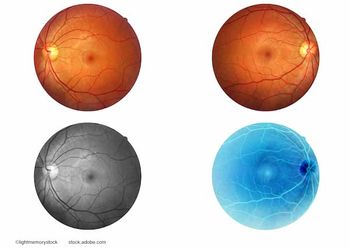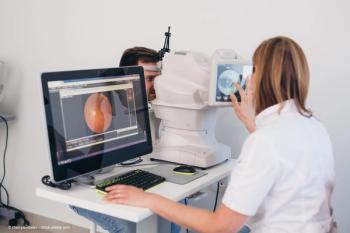
AMD and IRDs: What residents should know
We asked what leaders in the retina field would tell residents and medical students as they train for the next decades in retinal care. Here's what 2 of them had to say.
During interviews earlier this year, we asked what leaders in the retina field would tell residents and medical students as they train for the next decades in retinal care. Here's what Veeral Sheth, MD, MBA, FASRS, FACS, and Christine Kay, MD, had to say.
Video Transcript:
Editor's note: The below transcript has been lightly edited for clarity.
Veeral Sheth, MD, MBA, FASRS, FACS:
As we look to new therapies for AMD, especially neovascular, AMD, we're looking at a couple of different things to advance what we already have. We already have really great therapies in our anti-VEGF. So we want to build on that we want treatments that either have better durability, so they last longer, which will then decrease the treatment burden for these patients. We see in the real world, it's really hard to inject these patients as often as we really need to to achieve clinical trial data type of results. The other is efficacy, if we can get therapies that are more efficacious than what we have today. I think the bar is at high. We have really good therapies, but at the end of the day, we can always do better. We know we have patients in our clinic that still need more. And so I think those are the 2 things we're looking for. And if you can marry those 2, I mean, I think that's really kind of the biggest game changer you can hope for.
Christine Kay, MD:
I would say learn everything you can in your residency and your fellowship on inherited retinal disease. because it's the new frontier. I was fortunate to train at my fellowship at University of Iowa, where we do focus on retinal genetics, and Ed Stone was an expert there and Steve Russell, who was one of the principal investigators in the Spark Therapeutics, phase 3 trial for voretigene neparvovec. And it's being emphasized more and more, but get all the training you can in inherited retinal disease, because it's here to stay. We are now in the therapy realm, and multiple companies are now working on treatment for these previously untreatable diseases. So I'm very excited to be an inherited retinal disease specialist right now because now, for the first time, I can offer clinical trials and even potential FDA approved therapies, hopefully in the near future for my patients with inherited retinal diseases.
Newsletter
Keep your retina practice on the forefront—subscribe for expert analysis and emerging trends in retinal disease management.














































